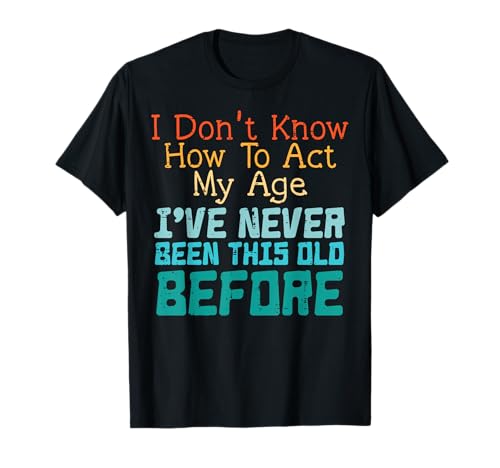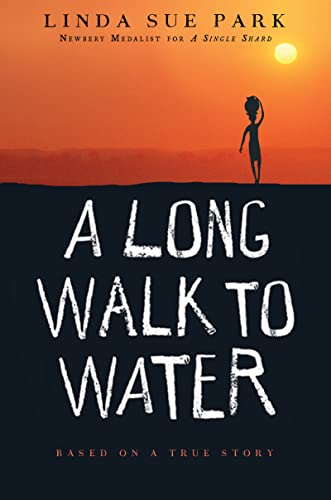Figuring out the best age to have kids for men isn’t as straightforward as it might seem. While women often face a more defined biological clock, men have a longer, albeit not infinite, window for fatherhood. But does that mean any age is the right age? Not exactly. There are a whole host of factors, from biological realities to emotional readiness and lifestyle considerations, that play into this big life decision. Let’s dive in and explore what really goes into finding that sweet spot for welcoming a little one into your life.
For years, the conversation around reproductive timing largely centered on women. However, modern science and societal shifts are increasingly highlighting the importance of paternal age. While men can technically father children much later in life, the quality of their reproductive health does change over time. Understanding these nuances is key to making informed family planning choices.
The Biological Landscape: When is Male Fertility at Its Peak?
Biologically speaking, most men reach their peak fertility between their late teens and early 30s. During this period, sperm quality, volume, and motility are generally at their highest. This means a lower risk of genetic mutations and higher chances of conception. While this might suggest that a younger age is the best age to have kids for men from a purely biological standpoint, it’s far from the whole story.
As men age, particularly after 40, there’s a gradual decline in sperm quality. This “male biological clock” isn’t as dramatic as the female equivalent, but it’s real. Older fathers can face a slightly higher risk of their children having certain conditions like autism spectrum disorder, schizophrenia, and some forms of dwarfism, primarily due to an increased chance of new gene mutations in older sperm. It’s not a guarantee, but it’s a factor worth considering.
Emotional Readiness: Are You Prepared for Fatherhood?
Beyond biology, emotional maturity plays a massive role in successful parenting. Younger men, while biologically prime, might still be figuring out their own lives. Fatherhood demands patience, selflessness, and a deep well of emotional resilience. Are you ready to put someone else’s needs consistently before your own? Have you developed the coping mechanisms to handle stress, sleep deprivation, and the intense emotional swings that come with raising a child?
Often, men in their late 20s, 30s, and even 40s find themselves more emotionally stable, with a clearer sense of identity and purpose. They’ve had time to grow, learn from life experiences, and develop the empathy required for nurturing a family. This often makes the early-to-mid 30s a strong contender for the best age to have kids for men from an emotional maturity perspective.
Financial Stability and Lifestyle: Building a Foundation
Let’s be honest: kids are expensive! From diapers and formula to education and extracurriculars, the costs add up quickly. Financial stability is a huge component of providing a secure and nurturing environment. Many men spend their 20s and early 30s building their careers, saving for a home, and establishing a comfortable lifestyle. Having a solid financial footing can significantly reduce stress during pregnancy and the early years of parenting, allowing you to focus more on your family.
Lifestyle factors also come into play. Do you have a demanding job that requires constant travel? Are you still enjoying a fast-paced social life that might not be conducive to early morning feedings and bedtime stories? While adjustments are always necessary, having a lifestyle that can adapt to family demands without extreme sacrifices can make the transition to fatherhood smoother. The best age to have kids for men often aligns with a period where career goals are somewhat stable, and there’s a readiness to shift priorities.
The Benefits of Being an Older Father
While risks increase slightly with age, there are definite perks to being an older father.
– Greater Stability: Often more financially and emotionally secure.
– More Patience: Life experience tends to foster greater patience and perspective.
– Enhanced Involvement: Older fathers may be more established in their careers, allowing more time and energy for hands-on parenting.
– Wiser Perspective: A broader life view can offer valuable guidance to children.
The Upsides of Being a Younger Father
On the flip side, younger fathers also bring unique advantages.
– More Energy: Keeping up with active toddlers and children is often easier with youthful vigor.
– Longer Lifespan with Children: Potentially more years to spend with adult children and grandchildren.
– Biological Peak: Higher sperm quality and fertility, as mentioned earlier.
Finding Your “Best Age”
Ultimately, there’s no single “magic number” that defines the best age to have kids for men. It’s a deeply personal decision that balances biological potential with emotional readiness, financial stability, and life goals. The ideal time will look different for everyone.
Here’s a quick checklist to help you ponder:
– Health: Are you in good physical health? Do you have a healthy lifestyle?
– Relationship: Is your relationship with your partner strong, stable, and ready for the challenges of parenthood?
– Financials: Do you have a stable income, savings, and a plan for future expenses?
– Emotional Maturity: Are you patient, resilient, and prepared for the responsibilities of raising a child?
– Support System: Do you have family or friends who can offer support?
The conversation around the best age to have kids for men is evolving, recognizing that men’s reproductive health and readiness are just as crucial as women’s. Taking the time to consider all these factors will help you decide when the time is right for you to embark on the incredible journey of fatherhood.
Featured Products (Unrelated to Article Topic)
Please note: The following products are not directly related to the topic of “best age to have kids for men.” They were provided as a separate list for review.
A Long Walk to Water: Based on a True Story

This compelling novel, based on a true story, is an inspiring read that intertwines the lives of two Sudanese children – Salva, a boy living in 1985, and Nya, a girl living in 2008 – both striving for survival and water in a land ravaged by war and drought. It’s a powerful tale of resilience, hope, and the human spirit that resonates deeply with readers.
- Ages 10 and up
- Grades 5 and up
Pros:
– Moving and inspiring true story
– Promotes empathy and understanding of global issues
– Accessible language for younger readers
– Excellent for classroom discussions
Cons:
– Deals with intense themes (war, famine) that might require parental guidance for sensitive readers
User Impressions: Readers consistently praise “A Long Walk to Water” for its impactful narrative and ability to open up conversations about perseverance and the importance of basic human rights. Many highlight its educational value and emotional depth.
How to Speak Cat: A Guide to Decoding Cat Language…

Ever wondered what your feline friend is really trying to tell you? “How to Speak Cat” aims to unlock the mysteries of cat communication, providing fascinating insights into their body language, vocalizations, and behaviors. It’s an absolute must-have for any cat owner looking to deepen their bond and truly understand their beloved pet.
- Engaging and informative guide
- Helps decipher various cat behaviors and sounds
- Packed with practical tips for understanding your cat better
- Written in an accessible and fun style
Pros:
– Enhances understanding of pet behavior
– Improves communication between owners and cats
– Fun and educational for all cat lovers
– Beautifully illustrated
Cons:
– Might not cover every single nuanced cat behavior
User Impressions: Cat owners rave about how much they’ve learned from this book, reporting improved relationships with their pets. They love its clear explanations and how it demystifies common feline actions, making them feel closer to their furry companions.
New Kid: A Graphic Novel

“New Kid” is a groundbreaking graphic novel that tackles the tough topic of starting middle school as one of the few kids of color in a predominantly white private school. It’s a witty, poignant, and incredibly relatable story about fitting in, finding your voice, and navigating friendships and identity during those awkward middle school years.
- Award-winning graphic novel
- Explores themes of race, class, and identity
- Humorous yet thought-provoking
- Appeals to middle schoolers and adults alike
Pros:
– Excellent for diverse representation
– Engages reluctant readers with graphic novel format
– Sparks important conversations about social issues
– Relatable characters and situations
Cons:
– Some sensitive topics that may require discussion with younger readers
User Impressions: This graphic novel consistently receives high praise for its honest portrayal of a challenging school experience. Readers appreciate its humor, strong character development, and its ability to address serious social issues in an accessible and engaging way for young people.
Dont Know How To Act My Age Funny Old Birthday…

This “Don’t Know How To Act My Age” T-shirt is the perfect gag gift for anyone who embraces their inner child, regardless of the number on their birthday cake! It’s a lighthearted, humorous way to celebrate growing older without necessarily growing up, making it ideal for a fun-loving mom, dad, or best friend with a great sense of humor.
- Grab this gag fun Dont Know How To Act My Age T-Shirt for your mom, dad, husband, wife, son, daughter, brother, sister, boyfriend, girlfriend or best friend! It’s the perfect gift idea for Birthday, Father’s Day, Mother’s Day or Christmas!
- This funny Dont Know How To Act My Age T-Shirt is the perfect humorous saying sarcastic tee tank top pj pajama clothes apparel for men, women, boys, girls, kids, toddlers, youth & teens who loves jokes quotes humor puns memes and sarcasms
- Lightweight, Classic fit, Double-needle sleeve and bottom hem
Pros:
– Great conversation starter
– Humorous and relatable design
– Perfect for birthdays and holidays
– Comfortable classic fit
Cons:
– Sizing might vary, so check the chart
User Impressions: Customers love this T-shirt for its humor and how well it resonates with people who feel young at heart. It’s a popular choice for gag gifts and casual wear, always bringing a smile to recipients’ faces.
Dr.Kbder Sensory Toys for Autistic Children Set, Autism…

The Dr.Kbder Sensory Toys Set offers a fantastic collection of fidget toys designed to provide stress relief, reduce anxiety, and improve focus for both children and adults. These durable, safe, and non-toxic fidgets are perfect for keeping hands and minds busy, making them ideal for individuals with ADHD, autism, or anyone needing a quiet way to self-regulate or concentrate.
- Sensory fidgets toys bulk – various kinds of adhd fidget water squishy toys help you relieve stres and anti-anxiety during working, help your kids keeping busy and focus during play.
- Safe and reliable – Each fidget toy is Made of durable, safe and Non-toxic material. With international toy standards, these toys are worry free.
- Sensory toys for autistic children – Have fun for hours while practicing and improving finger flexibility. Keep your hands and minds busy during work. Great office desk fidgets for adults stress relief and Anti-anxiety.
- Portable ADHD stress relief Toy – Each fidget toy is easy to operate, which can be used anywhere, anytime in various locations and occasions such as home, office, restaurant, theater, public transportation, etc. Make your daily life funny.
- Gifts for kids & adults – The quiet fidget toys can effectively help focus attention and promote sensory development. It is an ideal and considerate gift for children and adults. It a simple and great gift idea for birthday, Thanksgiving or Halloween, Christmas!
Pros:
– Wide variety of fidget toys
– Promotes focus and reduces anxiety
– Safe and non-toxic materials
– Portable and versatile for various settings
– Great gift for kids and adults
Cons:
– Some individual toy preferences may vary
– Not suitable for children who still put things in their mouths
User Impressions: Parents and therapists highly recommend these sensory toys, noting their effectiveness in helping children with autism and ADHD manage anxiety and improve concentration. Adults also find them useful for stress relief, praising the variety and durability of the set.
FAQ: Your Questions About Fatherhood Timing Answered
Q1: Is there a “too old” age for men to have children?
While men can father children at much older ages than women, fertility does decline gradually, and there’s a slight increase in risks for the child, such as certain genetic conditions, after age 40 or 50. However, many men successfully become fathers later in life with healthy children. It’s a personal decision weighing biological factors with life circumstances.
Q2: Does a man’s age affect the health of his child?
Yes, to some extent. As men age, there’s a higher chance of mutations in their sperm. Studies suggest children of older fathers (typically over 40-50) have a slightly increased risk of conditions like autism spectrum disorder, schizophrenia, and some rare genetic disorders. However, these risks are still relatively low for most fathers.
Q3: What are the benefits of being an older father?
Older fathers often bring greater financial stability, emotional maturity, life experience, and patience to parenting. They may be more established in their careers, allowing more time and energy to dedicate to their children.
Q4: Is it better to have kids when you’re younger for men?
Biologically, younger men (late teens to early 30s) tend to have optimal sperm quality and fertility. They also often have more energy to keep up with young children. However, they might lack the financial or emotional readiness that often comes with age.
Q5: How important is emotional readiness for fatherhood?
Emotional readiness is incredibly important! Fatherhood requires immense patience, selflessness, resilience, and the ability to handle stress. Being emotionally prepared can significantly impact your parenting experience and your child’s well-being.
Q6: Should I prioritize my career or starting a family as a man?
This is a very personal decision. Many men find a balance by building their career foundations in their 20s and early 30s, then shifting focus to family in their mid-30s or 40s when they feel more financially and professionally stable. It’s about finding the right equilibrium that works for your individual goals and values.
Q7: Can a man’s lifestyle choices affect his fertility?
Absolutely. Factors like smoking, excessive alcohol consumption, drug use, obesity, poor diet, and exposure to environmental toxins can all negatively impact sperm quality and male fertility, regardless of age. Maintaining a healthy lifestyle is crucial for reproductive health.

